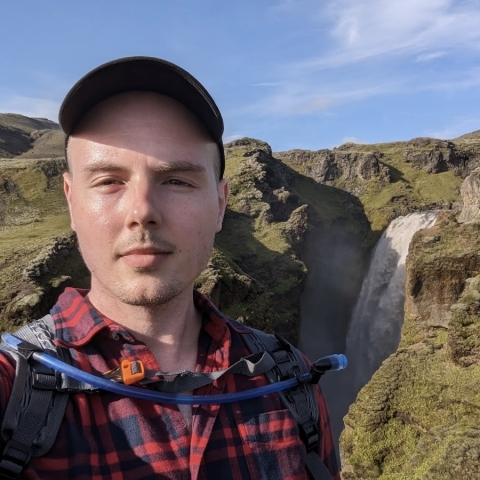In the ever-evolving landscape of scientific discovery, stable funding and institutional support are often the unsung heroes behind groundbreaking research. For one dedicated researcher and postdoctoral scientist, these resources have enabled the pursuit of critical questions about health and longevity.
Erik, an ARCS Foundation Oregon alum from the University of Oregon, is doing postdoctoral research at The Murphy Lab at Princeton University and uncovering the biological mechanisms that promote survival and longevity. "Our lifespans are determined both by maintaining internal health (healthy cells, organs, and bodies) as well as avoiding threats in our environment; after all, a long potential lifespan is only of value if a predator or pathogen doesn’t kill us prematurely," he explains. Using C. elegans, a microscopic nematode and Nobel Prize–winning model organism, he is studying molecules that are plentiful in youth but decline with age. By reintroducing these factors into aged worms, he has successfully extended their lifespan. Now, he is working to identify the specific molecules behind this effect and how they function to promote longevity.
Beyond extending lifespan, Erik discovered that injured worms release a warning signal, prompting others to avoid them and protecting fellow worms from the same fate. This behavior opened a new line of inquiry: identifying the molecular nature of the distress signal and how it triggers the escape response.
Overall, Erik seeks to illuminate the molecular roots of health and survival, aiming to find shared factors between worms and humans that could foster healthy aging. Dr. Erik Toraason’s work underscores the power of basic research and reminds us why continued scientific support is vital, even—or especially—during uncertain times. By understanding the biology of aging, we can strive for longer, healthier lives, thanks to discoveries like his and the support that makes them possible.
Erik emphasizes the importance of organizations like ARCS Foundation Oregon and the Life Sciences Research Foundation in his journey. "These awards throughout my scientific career have provided me with so much stability and confidence as a scientist," he shared. "Especially in these dark times, as NIH- and NSF-funded academic science face catastrophic cuts and layoffs, stable sources of private funding can mean the difference between making discoveries and being forced to change careers and abandon important research. I am so grateful to the people and organizations that believe in the promise of fundamental science and support the people doing it."

